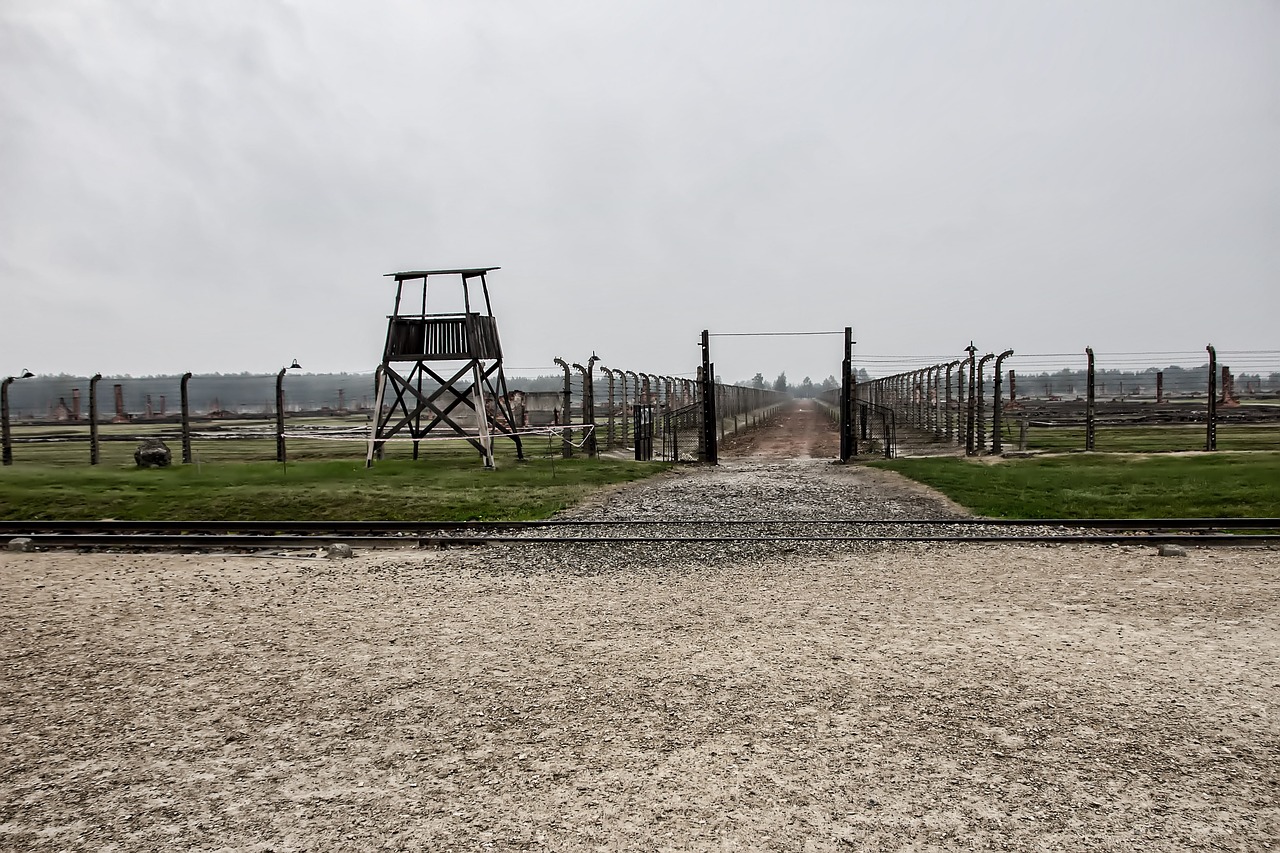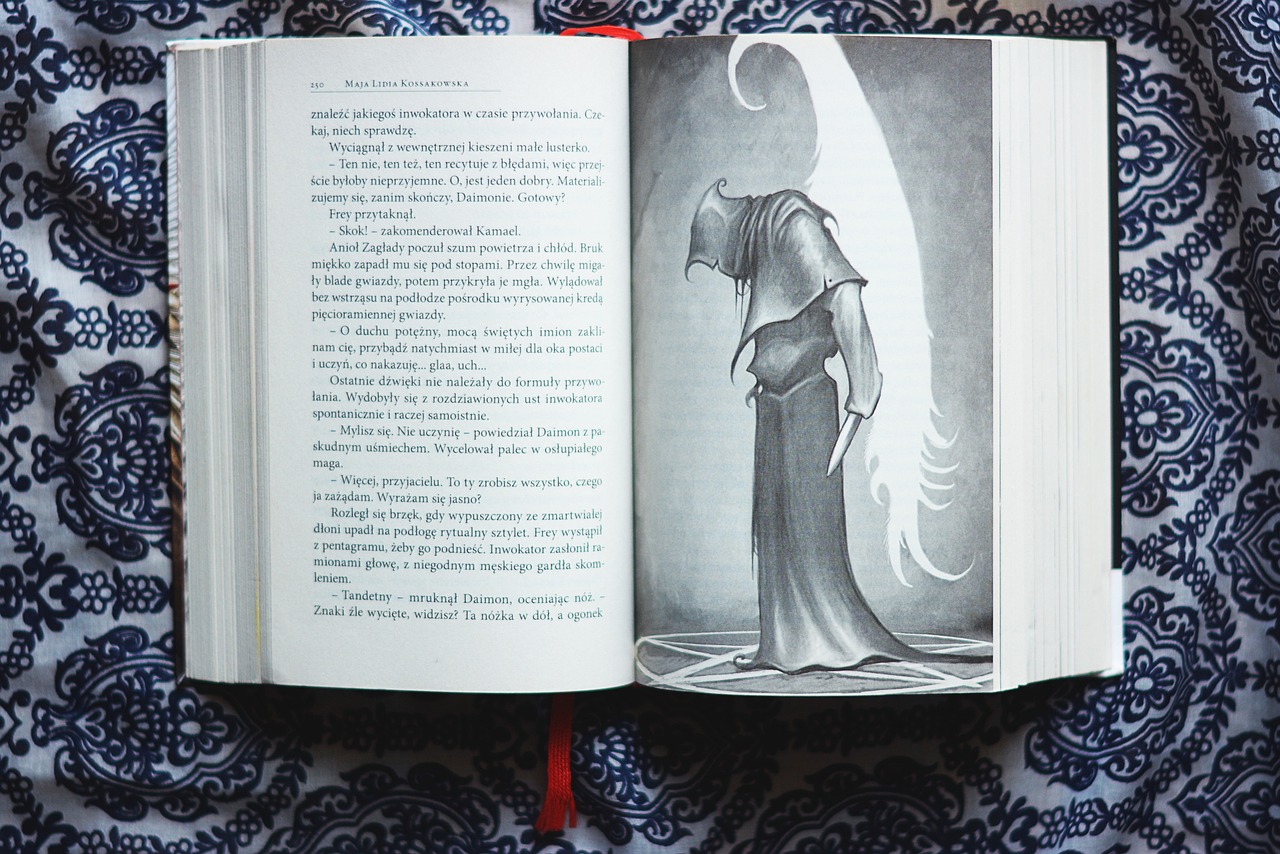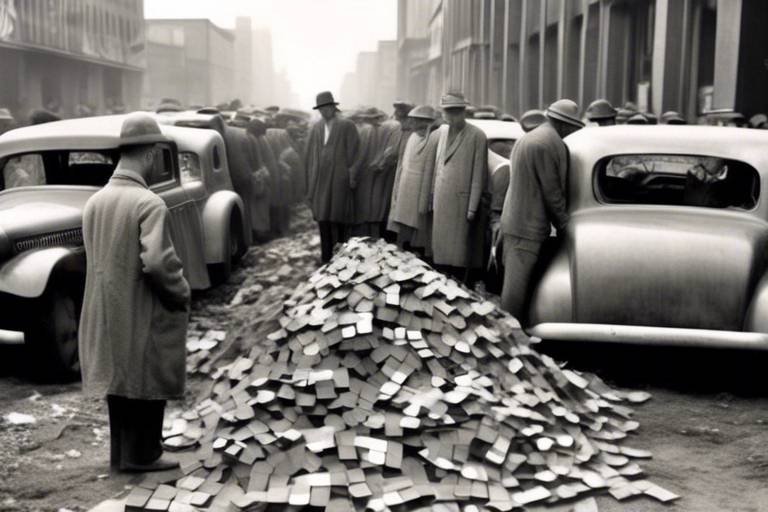The Impact of the Enlightenment on Literature
The Enlightenment period, with its intellectual revolution and emphasis on reason, had a profound impact on the world of literature. It reshaped the very essence of literary works, infusing them with new themes, styles, and ideologies that reflected the changing societal landscape of the time. Writers and thinkers of this era were not merely content with the status quo; they sought to challenge existing norms and provoke thought through their literary creations.
One of the key aspects of the Enlightenment that found its way into literature was the incorporation of philosophical ideals. Concepts such as reason, individualism, and skepticism permeated literary works, giving rise to a new breed of writing that was grounded in rationality and critical thinking. Authors used their narratives to explore these ideals, inviting readers to ponder deeper questions about the nature of existence and human experience.
Moreover, literature during the Enlightenment served as a platform for political and social critiques. Writers echoed the sentiments of Enlightenment thinkers who questioned the authority of monarchies, the power of the church, and the rigidity of societal norms. Through their works, they advocated for change, progress, and the empowerment of the individual in the face of oppressive structures.
The emergence of the novel as a popular literary form was another significant development during the Enlightenment. Novelists experimented with new narrative techniques and themes, offering readers a fresh perspective on storytelling. These novels often delved into the complexities of human relationships, societal issues, and moral dilemmas, reflecting the changing values of the time.
Enlightenment poets, on the other hand, used their craft to express philosophical ideas and societal critiques through language and form. Their verses were not merely lyrical but also served as vehicles for conveying deep-seated beliefs and challenging conventional wisdom. Poems became a medium through which poets could engage with the pressing issues of their day and inspire reflection in their readers.
Female authors also made significant contributions to literature during the Enlightenment, challenging traditional gender roles through their works. These women writers defied societal expectations and used their voices to advocate for greater equality and recognition. Their literary creations offered a unique perspective on the world and paved the way for future generations of female writers.
Enlightenment drama and theater reflected the ideals of the era, exploring themes of justice, morality, and societal change on the stage. Playwrights used the dramatic form to engage audiences in critical dialogue about the pressing issues of their time, sparking conversations and debates that reverberated beyond the confines of the theater.
Satire and comedy also played a crucial role in Enlightenment literature, serving as tools to critique societal absurdities and challenge traditional authorities. Through humor and wit, writers exposed the follies of the powerful and the hypocrisies of the establishment, inviting readers to question the status quo and envision a more just and equitable society.
Today, the legacy of the Enlightenment continues to shape modern literature, influencing narratives and perspectives on society and human nature. Writers still draw inspiration from the ideals of reason, individualism, and progress, weaving them into their stories to provoke thought and spark dialogue. The Enlightenment may be a historical period, but its impact on literature remains ever-present in the works of contemporary authors.

Philosophical Ideals in Literature
Exploring how the Enlightenment period influenced literary works, shaping themes, styles, and ideologies in literature.
During the Enlightenment, profound philosophical ideals permeated the literary landscape, infusing works with the essence of reason, individualism, and skepticism. Writers of the time sought to reflect these ideals in their narratives, creating thought-provoking pieces that challenged traditional beliefs and norms.
Imagine a world where every word written was a manifestation of individual thought, where reason guided the pen and skepticism fueled the imagination. This was the realm of Enlightenment literature, where authors dared to question the status quo and championed the power of human intellect.
Through the medium of literature, Enlightenment philosophers found a platform to express their revolutionary ideas. They crafted stories that celebrated the autonomy of the individual, exalted the pursuit of knowledge, and critiqued the dogmas of the past. In the pages of novels and poems, the essence of reason flowed, shaping characters and plots with a depth of intellectual inquiry.
Moreover, the philosophical ideals of the Enlightenment were not confined to mere words on a page; they sparked a revolution of thought that reverberated throughout society. Readers were challenged to question authority, to embrace their own agency, and to seek truth through critical examination. Literature became a battleground of ideas, where the weapons were pens and the victors were those who dared to think differently.
As the Enlightenment unfolded, literature became a mirror reflecting the changing tides of intellectual discourse. Authors grappled with the complexities of human nature, the nature of truth, and the role of society in shaping individuals. Through their works, they invited readers to embark on a journey of self-discovery, to explore the depths of reason, and to challenge the boundaries of conventional wisdom.
In conclusion, the philosophical ideals of the Enlightenment era left an indelible mark on literature, shaping the themes, styles, and ideologies that continue to resonate with readers to this day. Through the power of words, writers transformed abstract concepts into tangible narratives, inviting readers to ponder the mysteries of existence and the possibilities of a more enlightened future.

Political and Social Critiques
The Enlightenment period was a time of profound reflection and criticism, not only in the realms of philosophy and science but also in literature. Writers of this era took up their pens as swords, slashing through the veils of ignorance and challenging the established order. Political and social critiques permeated the literary landscape, echoing the voices of Enlightenment thinkers who dared to question the authority of monarchs, the dogma of the church, and the rigid structures of society.
Authors like Voltaire, with his sharp wit and biting satire, used their works to expose the flaws and hypocrisies of the ruling class. Through clever storytelling and clever wordplay, they highlighted the injustices and inequalities that plagued their societies. These literary rebels were not content to simply entertain; they sought to provoke thought and incite change, planting the seeds of revolution in the fertile soil of their readers' minds.
One of the central themes of Enlightenment literature was the call for progress and reform. Writers championed the ideals of reason, equality, and liberty, advocating for a more just and enlightened society. They used their pens to shine a light on the darkness of ignorance and superstition, challenging the status quo and envisioning a brighter future for humanity.
Through their works, these writers sparked debates, stirred emotions, and inspired generations to question the world around them. They laid the foundation for modern democracy, human rights, and social justice movements, leaving an indelible mark on the literary and political landscape. The echoes of their words still resonate today, reminding us of the power of literature to shape hearts, minds, and societies.

Emergence of the Novel
The Enlightenment period not only revolutionized philosophical and social thought but also paved the way for a literary revolution with the emergence of the novel. Prior to this era, literature primarily consisted of epic poems, plays, and essays. However, during the Enlightenment, the novel gained prominence as a popular form of storytelling, allowing authors to delve into complex narratives and explore human experiences in a more intimate and relatable manner.
Novelists of the Enlightenment era introduced innovative narrative techniques, such as the use of realistic dialogue, detailed character development, and intricate plot structures. These elements enabled writers to craft compelling stories that captivated readers and offered profound insights into the human condition. The novel became a medium through which authors could critique societal norms, explore moral dilemmas, and reflect on the complexities of human relationships.
One notable example of the novel's emergence during the Enlightenment is Daniel Defoe's "Robinson Crusoe," published in 1719. This groundbreaking work is considered one of the first English novels and exemplifies the era's focus on individualism, self-reliance, and the exploration of new worlds. Defoe's novel not only entertained readers with its adventurous tale but also challenged prevailing ideas about civilization, colonialism, and human nature.
The novel's rise during the Enlightenment marked a shift towards a more democratic form of literature, accessible to a wider audience beyond the elite circles. This democratization of storytelling allowed diverse voices to be heard and diverse experiences to be shared, contributing to a rich tapestry of literary expression that continues to influence writers to this day.

Enlightenment Poetics
The Enlightenment era brought a revolutionary approach to poetry, where poets were not only wordsmiths but also philosophers wielding their pens to challenge societal norms and express profound ideas. These poets utilized language and form in ways that transcended mere aesthetics, delving into the essence of human existence and the nature of society.
One of the key characteristics of Enlightenment poetics was the emphasis on clarity and rationality in expression. Poets sought to communicate their ideas in a straightforward manner, eschewing the ornate and complex language of previous eras. This focus on clarity allowed for a direct engagement with readers, enabling the dissemination of philosophical concepts and societal critiques in a more accessible way.
Moreover, Enlightenment poets often employed metaphors and analogies to convey deeper meanings and provoke contemplation. By using symbolism and imagery effectively, these poets were able to evoke powerful emotions and stimulate intellectual reflection in their audience. Through their poetic devices, they crafted verses that served as vessels for profound philosophical insights and social commentary.
Additionally, the poets of the Enlightenment era were keen observers of the human condition and the world around them. Their works often reflected the changing landscape of society, capturing the spirit of progress and intellectual curiosity that defined the age. Through their poetry, these writers not only entertained but also educated and challenged readers to think critically about the world they inhabited.
In conclusion, Enlightenment poetics represented a fusion of art and philosophy, where poets became agents of change through their words. Their verse served as a catalyst for intellectual discourse and a mirror reflecting society's virtues and vices. By embracing reason and enlightenment ideals, these poets left a lasting legacy in the realm of literature, inspiring generations to come.

Women Writers of the Enlightenment
During the Enlightenment period, women writers played a significant role in challenging the traditional gender norms of the time through their literary contributions. Despite facing societal barriers, these female authors made a lasting impact on the literary landscape, paving the way for future generations of women writers.
One prominent figure among women writers of the Enlightenment is Mary Wollstonecraft, whose seminal work "A Vindication of the Rights of Woman" advocated for women's education and equality. Wollstonecraft's writings sparked important discussions on gender roles and paved the way for feminist movements in the centuries to come.
Another notable female author of the Enlightenment is Aphra Behn, a playwright and novelist who defied conventions through her bold and provocative works. Behn's plays often challenged societal norms and explored themes of power, gender, and identity, setting a precedent for women in the literary world.
Women writers of the Enlightenment used their literary talents to address pressing social issues and advocate for change. Through their works, these authors brought attention to the injustices faced by women and marginalized groups, contributing to the broader discourse on equality and human rights.
Despite facing criticism and discrimination, women writers of the Enlightenment persevered in expressing their unique perspectives and challenging the status quo. Their voices added depth and diversity to the literary landscape of the time, enriching the overall cultural dialogue and paving the way for greater inclusivity in literature.

Enlightenment Drama and Theater
During the Enlightenment period, drama and theater emerged as powerful mediums for conveying the philosophical and social ideals of the era. Playwrights and actors alike seized the stage to explore themes of justice, morality, and societal change in a way that captivated audiences and sparked intellectual discourse. The plays of this time were not merely entertainment but rather thought-provoking reflections of the societal issues and values of the Enlightenment.
Enlightenment drama often depicted conflicts between reason and emotion, tradition and progress, shedding light on the tensions within society. Playwrights like Voltaire and Beaumarchais used their works to challenge authority, criticize religious dogma, and advocate for individual freedoms. Through witty dialogue, intricate plots, and memorable characters, these plays engaged audiences in critical thinking and reflection on the world around them.
Theater during the Enlightenment also served as a platform for social commentary and satire. Satirical plays, in particular, used humor and irony to expose the absurdities of the political and social systems of the time. By poking fun at the flaws of society, playwrights aimed to provoke change and inspire audiences to question the status quo.
Moreover, the Enlightenment period saw the rise of sentimental drama, focusing on the emotions and moral dilemmas of characters. These plays aimed to evoke empathy and compassion in the audience, highlighting the importance of human connection and understanding. Through emotional storytelling and melodramatic performances, sentimental drama sought to touch the hearts of viewers and inspire them to reflect on their own values and actions.
In conclusion, Enlightenment drama and theater played a significant role in shaping the cultural landscape of the era, offering a platform for intellectual discourse, social critique, and artistic expression. The works produced during this period continue to resonate with audiences today, reminding us of the enduring impact of the Enlightenment on the world of literature and performance.

Satire and Comedy in Enlightenment Literature
Satire and comedy were powerful tools wielded by writers during the Enlightenment period, serving as sharp instruments to dissect societal absurdities and challenge the status quo. In the realm of literature, satire took on a new level of importance, providing a platform for authors to critique traditional authorities and norms in a humorous yet impactful manner.
Authors of the Enlightenment era used satire to expose the hypocrisies and follies of the ruling class, the church, and societal conventions. Through clever wit and humor, writers like Jonathan Swift and Voltaire crafted satirical works that aimed to provoke thought and incite change. Satire became a means of highlighting the flaws and injustices prevalent in society, urging readers to question the existing power structures and ideologies.
Comedy, on the other hand, offered a lighter approach to addressing societal issues, using humor to entertain while also delivering subtle critiques. Playwrights such as Molière infused their comedic works with social commentary, blending laughter with insightful observations on human behavior and societal norms.
One of the key aspects of satire and comedy in Enlightenment literature was their ability to challenge authority and question established beliefs through laughter. By presenting serious issues in a humorous light, writers were able to engage audiences in critical reflection while providing entertainment.
Through satire and comedy, Enlightenment writers were able to push boundaries, challenge conventions, and spark conversations about the need for change and progress in society. Their works continue to resonate today, reminding us of the enduring power of humor and wit in addressing serious issues.

Legacy of the Enlightenment in Modern Literature
As we delve into the legacy of the Enlightenment in modern literature, we witness a profound influence that continues to shape the literary landscape. The Enlightenment era, with its emphasis on reason, individualism, and the questioning of traditional beliefs, has left an indelible mark on contemporary literary works.
One of the key legacies of the Enlightenment in modern literature is the persistent exploration of complex philosophical ideas and societal issues. Authors today continue to engage with themes of rationality, human rights, and the pursuit of knowledge, echoing the intellectual spirit of the Enlightenment thinkers.
Moreover, the Enlightenment's legacy can be seen in the evolution of narrative structures and storytelling techniques in modern literature. Writers draw inspiration from the Enlightenment era's emphasis on clarity and logic, crafting narratives that challenge readers to think critically and reflect on the world around them.
Furthermore, the Enlightenment's legacy in modern literature extends to the ongoing critique of authority and the status quo. Contemporary authors use their works to question power dynamics, challenge oppressive systems, and advocate for social change, echoing the Enlightenment thinkers' call for progress and reform.
Additionally, the Enlightenment's influence on modern literature can be observed in the continued exploration of human nature, morality, and the complexities of society. Authors today grapple with ethical dilemmas, societal injustices, and the intricacies of human relationships, drawing inspiration from the Enlightenment era's commitment to intellectual inquiry and moral reflection.
In conclusion, the legacy of the Enlightenment in modern literature is a testament to the enduring relevance of its ideals and principles. As contemporary authors continue to engage with the philosophical, social, and political legacy of the Enlightenment, they uphold a tradition of critical thinking, intellectual curiosity, and creative expression that enriches the literary landscape of today.
Frequently Asked Questions
- What was the Enlightenment period?
The Enlightenment period, also known as the Age of Reason, was an intellectual and cultural movement in the 17th and 18th centuries that emphasized reason, science, individualism, and skepticism. It marked a shift away from traditional authority and religious dogma towards a focus on rationality, progress, and human rights.
- How did the Enlightenment influence literature?
The Enlightenment had a profound impact on literature by inspiring writers to explore new themes, styles, and ideologies. Authors incorporated Enlightenment philosophies such as reason, liberty, and equality into their works, leading to the emergence of novels, plays, poems, and essays that critiqued societal norms and advocated for change.
- What were some key characteristics of Enlightenment literature?
Enlightenment literature often featured a focus on individualism, rationality, and social critique. Writers used satire, comedy, and allegory to challenge traditional authorities and highlight the need for progress and reform in areas such as politics, religion, and gender roles.
- Why are women writers of the Enlightenment significant?
Female authors during the Enlightenment played a crucial role in challenging traditional gender roles and advocating for women's rights through their literary works. Their writings provided a unique perspective on society and contributed to the broader cultural shift towards equality and social justice.
- How do Enlightenment ideas continue to influence modern literature?
The legacy of the Enlightenment can be seen in contemporary literature through themes of individual rights, social justice, and the pursuit of knowledge. Writers continue to grapple with the philosophical and ethical questions raised during the Enlightenment, shaping narratives that reflect our evolving understanding of society and human nature.



















